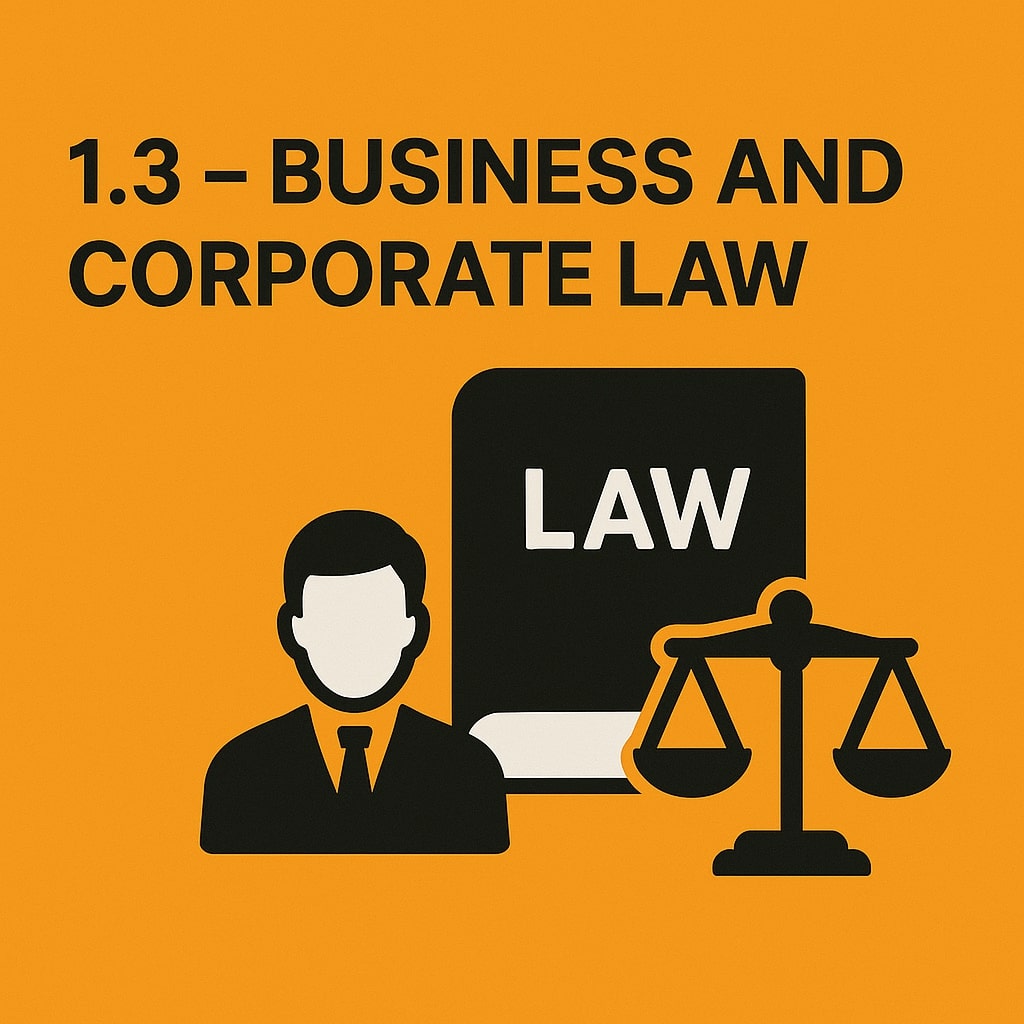The Business and Corporate Law module is part of the Knowledge Level (Level 1) in the ICAG professional qualification syllabus. It focuses on providing candidates with an understanding of the general legal framework and specific areas of law relating to business, emphasizing compliance with regulations and the need for specialist legal advice where necessary. Below is the syllabus coverage presented in tabular form, including the main topics and their approximate weightings (guiding study time and exam mark allocations).icagh.org
| Syllabus Topic | Description | Weighting (%) |
|---|---|---|
| A. Essential elements of the legal system | Identifies and explains the essential elements of the legal system, including main sources of law (per Article 11 of the 1992 Constitution), case law and precedent, court hierarchy (Superior and Lower Courts), supervisory roles of Superior Courts, alternative dispute resolution (ADR) mechanisms, arbitration, and the application of law to public sector entities. | 5 |
| B. Legal rules relating to the law of obligations | Identifies and applies legal rules on obligations, covering contract formation and content (elements like offer, acceptance, capacity, consideration, privity, terms vs. representations, conditions, warranties, mistake, misrepresentation, exclusion clauses), breach and remedies (damages, equitable remedies, undue influence, duress), tort (duty of care, breach, negligent misstatement, causality, remoteness, defenses, nuisance, vicarious liability), agency (creation, fiduciary duties, rights/obligations, termination), sale of goods/hire purchase/negotiable instruments (Sale of Goods Act sections, hire purchase, bills of exchange, cheques), and insurance/banking contracts (insurable interest, Bank of Ghana roles). | 25 |
| C. Employment law | Explains and applies law on employment relationships, including distinction between contract of service and contract for services (tests like control, integration, multiple reality, entrepreneurial), rights/duties of employers and employees, unfair termination, dismissal, redundancy, and remedies. | 10 |
| D. Formation and constitution of business organisations | Distinguishes between forms and constitutions of business organisations, covering legal distinctions (sole proprietorship, partnerships, companies), types of companies (under Companies Act), company formation process, role of promoters, separate legal personality, veil of incorporation, partnership formation/termination, and partner liabilities. | 15 |
| E. Capital and financing of companies | Identifies and explains types of capital and financing, including equity/debt, share classes, altering class rights, capital maintenance/dividends, debentures/bonds, fixed/floating charges. | 10 |
| F. Management, administration and regulation of companies | Describes and explains company management, administration, and regulation, including roles of directors, secretaries, auditors, meetings (AGM, EGM), resolutions, corporate governance principles. | 15 |
| G. Legal implications relating to insolvency law | Recognises legal implications for companies in difficulty or crisis, covering insolvency procedures, liquidation, administration, receivership, creditor rights. | 10 |
| H. Corporate governance and ethical issues | Demonstrates understanding of governance and ethical issues in business, including codes of ethics, director duties, conflicts of interest, insider dealing, fraud, and corporate social responsibility. | 10 |


